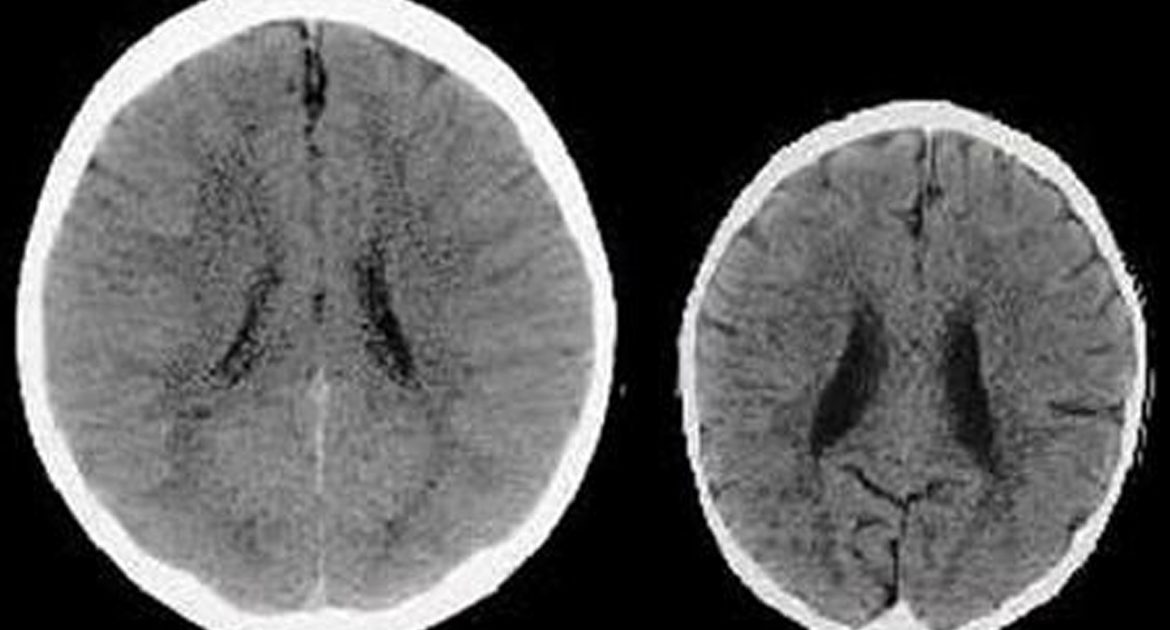Scientists, educators, and parents have all long debated whether nature or nurture plays a greater role in the development of a child. A new study sheds a light on that very important question.
While it is undeniable that genes — or nature — play an essential role in a child’s development, a new study has proven just how key nurture is. In fact, it is nurturing itself that is absolutely vital.
In a groundbreaking study, scientists scanned the brains of two 3-year-old children. One child was described as “normal,” while the other was described as being a victim of “extreme neglect.”
Specifically, scientists were studying the role of the primary caregiver — in most cases, the mother — in a child’s early development. One child had a mother who was sensitive to its needs, while the other was abused and neglected by its mother.
One doesn’t need a scientific study to know the importance of a nurturing caregiver in a child’s life. These brain scans, however, provide clear and visible proof that a nurturing environment is more than important — it is absolutely necessary.
A kind and nurturing word or act goes a long way.FACT: Research has shown that when children are not cared for…
Posted by UNICEF Pacific on Mittwoch, 14. Juni 2017
After scanning the two children’s brains, scientists expected the images would be indistinguishable. They were wrong.
The results were truly astonishing. The brains should have been nearly identical given the fact that the children were of the same age.
As you can see, the child who was cherished and nurtured has a normal-sized brain, as shown in the left scan. Sadly, extreme neglect resulted in poor brain development for the other child, as evidenced by the brain on the right.
The healthy brain on the left appears full and strong. The shrunken, underdeveloped brain of the child who suffered extreme neglect clearly indicates a need for a nurturing, loving caregiver.
The healthy, strong brain is a good predictor of future success. Medical Daily wrote, “Researchers at Washington University School of Medicine in St. Louis, found that children whose mothers nurtured them early in life have a larger hippocampus, a key brain structure that is essential to learning, memory and response to stress.”
Scientists noted a lack of development in key areas of the neglected child’s brain, leading to a higher risk for mental and physical problems later in life. Medical Daily explained that “the child with the smaller brain on the right will be more likely to become addicted to drugs, be involved in violent crimes, be unemployed and dependent on government benefits in the future.”
As UCLA Professor Allan Schore explained to the Telegraph that a developing brain “literally requires positive interaction between mother and infant. The development of cerebral circuits depends on it.”
The Telegraph elaborated on the severe impact neglect and abuse can have, as “the more severe the neglect, the greater the damage.” Because 80 percent of a person’s brain cells are produced in the first two years of life, “deficits are permanent” if the brain is interrupted in its development.
Sadly, research shows that neglect is often cyclical. Neglected and abused children become parents who neglect and abuse their own children, creating a vicious cycle.
Thankfully, there are alternatives, and hope. Early intervention has been helpful in identifying individuals likely to neglect or abuse their children, and resources can then be made available to help them learn healthy behaviors.
As Psychology Today puts it, “After you’re born, the greatest impact on the brain you’ll have as an adult comes from the experiences you have in the first years of your life.” This is one fascinating study that proves what caregivers everywhere already knew: you can never love a child too much.






